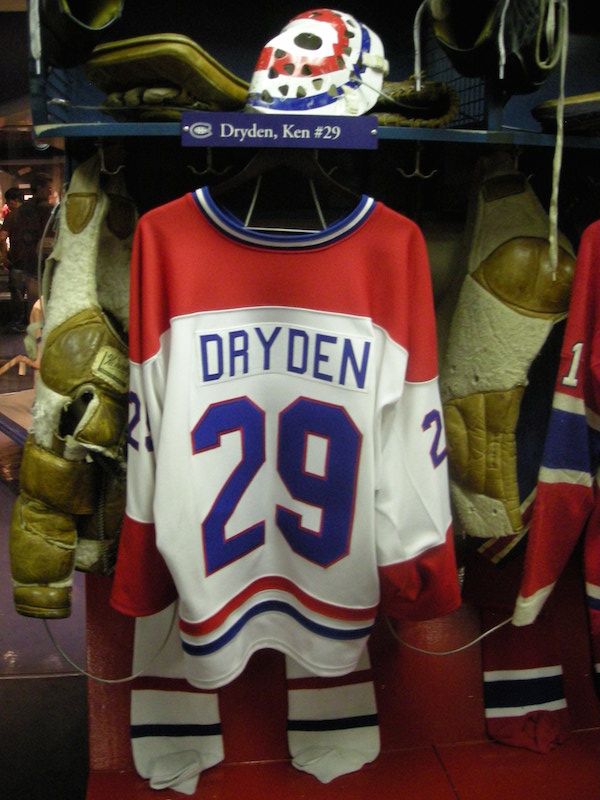On May 8 we answered a question about the rules of lacrosse from Alana. In it the subject of how different sports deal with players who put themselves in dangerous situations came up. In women’s lacrosse there are rules against endangering oneself. In ice hockey, we noted, the rules and the ethos of the sport are the opposite. If you put yourself in a dangerous position in hockey you are likely to get hurt by a player acting within the rules and hockey culture will tell you that you have no one to blame but yourself.
On the same day Grantland.com published an article by Ken Dryden about the same topic. The first sentence of Dryden’s Wikipedia page describes him as “a Canadian politician, lawyer, businessman, author, and former NHL goaltender.” He was a Stanley cup winning goaltender for the Montreal Canadians in the 1970s and later wrote a book about his experiences called The Game which is widely thought of as one of the best books about hockey ever written. He’s definitely got the credentials to be well respected and closely listened to about hockey.
In the article, “After the Hit,” Dryden comments on a violent collision and the resulting injury and suspension from a recent game between the Ottawa Senators and the Montreal Canadians[1] and he wonders if hockey’s ethic on responsibility as it pertains to endangering oneself has gone too far:
It’s this aftermath to the hit that I’ve found most remarkable. There is an ethic in sports that wasn’t always there. It goes, As a player, I can do what I want to do. I will do what I must do. I will face the consequences of my actions and of the rules. Other players will and must do the same. It is my responsibility to protect myself; it is no one else’s. It is their responsibility to protect themselves; it is not mine. If, out of this, things happen, they happen. I may feel sadness as a human being toward another human being, but sadness is not the point. I will feel no regret. I expect none from others. That’s hockey. That’s life.
There is another ethic in sports that has also always been there, and still is. It is worn as a badge of honor, particularly by the “tough guys.” It goes: I will not hit someone when he is down. I will not hit someone when he is defenseless. There is no courage in that. There is dishonor in the doing. The question in this case: What makes a Gryba hit clean and good on a defenseless Eller when a punch to the face of someone lying on the ice, equally defenseless, is not?
I encourage you to spend a few minutes with his article!
Ezra Fischer
- There are some graphically violent videos in the post so watch out — but you don’t need to click on them if you don’t want.↵

